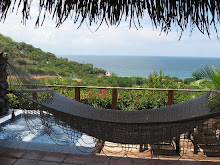Governments and international banks should seize Hosni Mubarak's assets and hold them in escrow to be returned to the people of Egypt, an international corruption watchdog said Friday.
"What is happening in Egypt today shows there is a major problem with a lack of transparency," said Huguette Labelle, the chair of Transparency International, an influential international corruption watchdog with ties to the UN.
After 18 days of protests, former Egyptian president Hosni Mubarak stepped down on Friday, although his exact location remains unknown. His wife and sons are rumoured to have long since fled the North African nation.
His financial assets are believed to be spread across the globe, and as the motions to replace him in a democratic Egypt lurch into action, so too has the international movement to retrieve any financial assets he may have absconded with.
"When there is a dictator who appears to have acquired much more wealth than he would warrant as a salary of a head of a corporation or country, they should investigate immediately because you don't know where those assets are parked," Labelle said.
Labelle spent 19 years in deputy ministerial positions in the Canadian civil service across a variety of departments before chairing the international lobby group in 2005. She is also chancellor of the University of Ottawa and is a Companion to the Order of Canada.
She spent seven years presiding over CIDA, the Canadian International Development Agency, and now calls for international governments and banking institutions to investigate Mubarak's assets and seize any illegitimate funds.
"If there is any evidence of illicit transfers, then you put this money in escrow," she told CBC News on Friday. "It's the people's money. It should return to the people assuming there is a government that will look after it."
Reports this week estimated that Mubarak's family wealth could be in excess of $40 billion — a figure that would put him just behind Berkshire Hathaway head Warren Buffett, Microsoft founder Bill Gates and Carlos Slim Helu, the world's richest man.
Those figures were based on numerous estimates, as finding an exact figure of how many funds the deposed leader could even theoretically have access to is as yet unknown. But it's estimated that 40 per cent of Egypt's 80 million people live on less than $2 a day.
A report by think tank Global Financial Integrity released in January found that Egypt is losing more than $6 billion US a year — more than $57.2 billion US between 2000 and 2008 — to illicit financial activities and official government corruption.
skip to main |
skip to sidebar

I am a boomer, busy boomer that is. Check my Busy Boomers site and see if you can find something for you.

Blog Archive
-
▼
2011
(333)
-
▼
February
(36)
- Meet the dorky, controversial mascots for the 2014...
- Debut actresses do well at Oscars; not so for men ...
- Six Ways To Get Your Daily Calicium Without Milk
- Off With Her Headpiece!
- Learning a Second Language Protects Against Alzhei...
- Indoor Tanning Tips
- Why Men Marry: Revealed
- Why to Hire a Mortgage Broker
- Tips on Home Security Systems
- Benefits of Buying a Condo
- Online Advertising for Small Business
- Winnipeg landlord turns old trailer into cooker to...
- Three Ways Grapefruit Fights Aging
- 7 Surprising Ways Happy Couples Stay Close
- Doctors say reporter suffered migraine, not stroke...
- Zinc will help your cold, at least a little
- Eat This For Gorgeous Skin
- Liam Neeson Recalls Death Of Wife Natasha Richardson
- Five Reasons To Eat More Chocolate!
- 4 Dangers That Make Even Healthy Foods Toxic
- Top 10 places to beat the winter blues
- Seize Mubarak's money
- 12 Of The Healthiest Foods
- A&W attempts to make fast-food restaurants feel mo...
- Julia Roberts to play evil queen in Snow White (Re...
- TD and CIBC to hike mortgage rates by as much as o...
- 7 Avoidable Reasons You’re Waking Up Tired
- The Proper Use Of Fonts In Your Resume
- Are you About to Be Fired from Your Job?
- Simple life changes could stop millions of cancers
- Nicole Kidman was ''damaged'' by Cruise split
- Dog Behavior and Training
- One Of The Health Benefits Of Spinach Is It Can He...
- 5 possible Earth-like habitable planets found
- Cyclone hits Australia's northeast, wrenching off ...
- Agency survey shows confusion still reigns over Ta...
-
▼
February
(36)
Blogs To Check
Busy Boomers
Disclosure Policy
It is advisable to assume that any mention of a product or service on this website is made because there exist, unless otherwise stated, a material connection between the product or service owners and this website and should you make a purchase of a product or service described here the owner of this website may be compensated. To learn more please Click Here